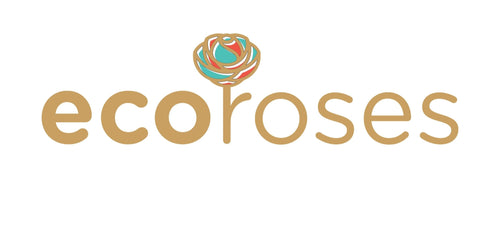Flower farms around the world are shifting to organic practices in response to growing consumer demand for eco-friendly blooms, environmental responsibility, and healthier farming methods. This transformation isn’t just about following a trend - it’s a necessary step toward preserving our planet, protecting workers, and delivering flowers that are as pure as they are beautiful.
In this article, we’ll explore the reasons behind the organic movement in the floral industry, how these farms operate, the challenges they face, and why buying organic flowers benefits both people and the environment.
1. The Problem with Conventional Flower Farming
For decades, traditional flower farming relied heavily on synthetic pesticides, herbicides, and fertilizers to meet high production demands. While this approach ensured large, picture-perfect blooms year-round, it came with hidden consequences:
-
Chemical Runoff – Fertilizers and pesticides often leach into local waterways, damaging aquatic ecosystems.
-
Soil Degradation – Intensive monoculture flower production depletes soil health over time.
-
Worker Exposure – Farm laborers are often exposed to harmful chemicals without adequate protection.
-
Carbon Footprint – Reliance on fossil fuel-powered machinery and chemical production increases greenhouse gas emissions.
The beauty of flowers shouldn’t come at the cost of the planet’s health - and that’s where organic farming enters the picture.
2. What “Organic” Really Means for Flowers
When we hear “organic,” most of us think about food. However, the principles apply just as much to ornamental plants. Organic flower farming means:
-
No synthetic pesticides, herbicides, or chemical fertilizers.
-
Reliance on natural pest control methods such as beneficial insects.
-
Soil enrichment through composting and crop rotation.
-
Use of non-GMO seeds and propagation materials.
-
Compliance with organic certification standards (like USDA Organic or Fairtrade standards).
This ensures flowers are grown in harmony with nature, supporting biodiversity and long-term soil health.
3. Why Flower Farms Are Making the Switch
The shift toward organic flower farming is fueled by several factors:
a) Consumer Awareness
Today’s buyers are more informed than ever about sustainability. They want to know where their flowers come from, how they were grown, and what impact their purchase has on the environment.
b) Health and Safety
Farmers and workers benefit from reduced exposure to hazardous chemicals. This improves their long-term health and reduces accidents related to chemical handling.
c) Environmental Responsibility
From climate change to pollinator decline, farmers are becoming active participants in global environmental solutions.
d) Market Differentiation
Organic certification and eco-friendly branding help farms stand out in a competitive market.
4. Organic Farming Practices in the Floral Industry
Here’s how organic flower farms operate differently from conventional ones:
-
Companion Planting – Growing flowers alongside plants that repel pests naturally.
-
Biological Pest Control – Introducing ladybugs, lacewings, and parasitic wasps to control harmful insects.
-
Natural Fertilizers – Using compost, seaweed extracts, and manure to nourish plants.
-
Rainwater Harvesting – Reducing reliance on municipal water supplies.
-
Crop Rotation – Maintaining soil fertility and breaking pest cycles.
5. The Challenges of Going Organic
While the benefits are significant, switching to organic methods comes with obstacles:
-
Certification Costs – Obtaining organic certification can be expensive for small farms.
-
Transition Period – It takes 2–3 years to fully convert a conventional farm to organic.
-
Yield Uncertainty – Organic methods may produce smaller yields initially.
-
Pest Pressure – Without chemical pesticides, farmers must rely on time-intensive manual pest control.
Despite these challenges, the long-term payoff - healthier ecosystems, stronger brand identity, and consumer loyalty - makes the transition worthwhile.
6. How You Can Support Organic Flower Farming
Consumers have the power to accelerate this positive change. Here’s how:
-
Buy from Local Organic Farms – Support small-scale growers in your community.
-
Look for Certifications – Choose flowers labeled USDA Organic, Fairtrade, or Rainforest Alliance Certified.
-
Ask Florists About Sourcing – Encourage local shops to stock organic options.
-
Choose Seasonal Blooms – This reduces the need for high-energy greenhouses and imports.
7. The Future of Organic Flowers
With growing environmental concerns and shifting consumer priorities, the organic flower market is expected to expand rapidly. As technology improves, pest-resistant flower varieties and efficient irrigation systems will make organic farming more accessible to growers worldwide.
The organic floral movement isn’t just a trend - it’s a long-term transformation toward a more sustainable and ethical industry.
Final Thoughts
Organic flower farming represents a return to nature, where beauty is cultivated without compromising the health of people or the planet. By choosing organic, you’re not only getting fresher, safer blooms but also helping build a greener, more sustainable future.
So, next time you order a bouquet, think beyond the petals - and choose flowers grown with love for both you and the earth.


